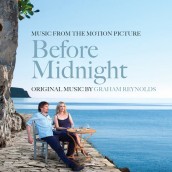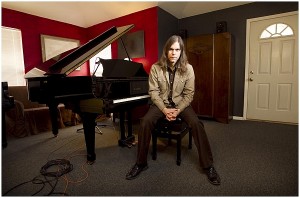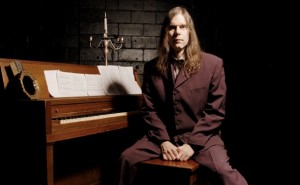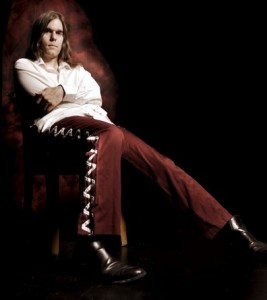For such a visual medium as film, it’s amazing that watching two agingly attractive people gabbing away overseas at cafes, on sidewalks and in hotel rooms can prove just as cinematically engaging as a superhero blockbuster. That says much about just how great the said talk is through three BEFORE movies, a conversation first sparked 18 years ago by filmmaker Richard Linklater and co-writer Kim Krizan in BEFORE SUNSET, then continued on in 2004’s BEFORE SUNRISE with co-stars Ethan Hawke and Julie Delpy adding their own verbal food for thought for their character’s developing relationship. Now BEFORE MIDNIGHT finds American author Jesse living the expatriate life while on vacation in Greece with a none-too happy Celine, her ennui butting heads with his smart-assed expressions of satisfaction. Their rising conflict brings a much darker shade of conversation to the once star-crossed couple, which might not very well last for the hour to draw near.
With such entrancing, impactful words, music has got to step daintily. Previous composer Fred Frith kept it to barely a hush, while the second movie had no score at all. But music is very much a part of BEFORE MIDNIGHT, as personified in the lovely, captivating melody of Linklater regular Graham Reynolds. As such romantically inclined composers as John Barry and Henry Mancini have memorably shown, the theme’s the thing when it comes to making us fall in love with characters, no matter how they might argue over the nature of their attraction. And Reynolds has a gentle doozy of a theme here. His poignant melody functions as both emotional travelogue and tour guide as we venture with Jesse and Celine, the score playing Greek chorus to their troubled relationship, while not saying anything too obvious. Reynolds beautifully varies his theme from piano to guitar, giving pace to the ticking clock of BEFORE MIDNIGHT, as well as providing subtle contemplation to a couple whose love doesn’t seem so fateful anymore.
BEFORE MIDNIGHT also embodies the most melodically gentle score in this impressive collaboration between fellow Austin-ites. A prolific composer for all that is indie in the alt. world music capital of it, Reynolds’ work includes jazz, classical, chamber, rock and every innovative avenue between, a captivating talent that’s spread far and wide. Captivated by Reynold’s adventurous work, Linklater brought the musician aboard with a captivatingly bizarre flourish for 2008’s A SCANNER DARKLY, for which he captured author Phillip K. Dick’s paranoia with an unsettling melange of acoustical instruments, rhythmically warped strings, electro-rock and gossamer bells. Then from a score that defined drugged-out future shock, Reynolds took an equally unexpected turn into the Texan eccentricity of Linklater’s BERNIE. Accompanying the self-actualized gospel of a nice guy funeral director who just happens to be a murderer, Reynolds created berserk mini-symphonies, hyper Middle Eastern dances, sorrowfully droll hymns, drawling country source and an overall sense of woe-is-me exasperation that proved a down-home counterpoint to the unbelievable but-true crime dramedy.
That BEFORE MIDNIGHT is positively normal in comparison says much about the eclectic ability of Linklater, who counts such Texas-generated movies as GRETCHEN, I’LL COME RUNNING and FAR MARFA among his resume, in addition to numerous documentaries. But it’s in the seeming simplicity of “Before Midnight” that Reynolds has perhaps made his greatest trek as a composer, showing just how important music is in the conversation to a couple that universally stands for a greying hipster generation.
ASSIGNMENT X: People might assume you were a natural Austin-ite. However, you’re originally from Germany. Did your interest in music begin there, or in the States?
GRAHAM REYNOLDS: I was born in Germany but as an American citizen. My dad was in the army, stationed in Frankfurt, so my parents had a place over there. My musical interest began instead in Connecticut, where my mom was taking piano lessons. I thought she was cool and I wanted to do whatever she was doing. From elementary school through high school I ended up having an incredible sequence of music teachers: Mr. Diamond, Mrs. Gedraitis, Andras Farkas, and Chris Hickerson. They are the reason I ended up as a composer. If my best teachers had been in a different field, then that’s what I would have ended up doing.
AX: Tell us about your journey from Austin alt. rock musician to becoming a film composer?
REYNOLDS: The first clubs in Austin to let me play were all punk rock clubs, even though the strange jazz-classical-rock-improv instrumental music we were doing was pretty far from what you think of as punk. Immediately after my first public show people came up to me asking me to score their work. I didn’t seek out film, or theater, or ballet; I just kept saying yes and they kept coming to me. Once I got A SCANNER DARKLY I started focusing more directly on pursuing film work. I got an agent and went from there. Now I’m with Evolution Music Partners and they’re fantastic.
AX: How did you first meet Richard Linklater, and what was it about your music that made him want you to score A SCANNER DARKLY?
REYNOLDS: I’ve found that even the biggest cities start to feel like small towns a bit once you start working in them. And Austin’s not the biggest city. Rick and I had a lot of mutual friends. I scored theater that he saw as well as silent films, live scores to experimental shorts, and all sorts of things. I’m not sure what made him decide to ask me to work with him, I’d only be guessing. But, we started with a short called LIVE FROM SHIVA’S DANCE FLOOR, which featured Speed Levitch. I think that piece worked as my audition of sorts. The night he first mentioned SCANNER to me was at a jazz singer gig, where I was accompanying standards like “Moonlight in Vermont”, something I hadn’t done since high school. You really never know when connections are going to be made and where work is going to come from.
AX: Even in the realm of futuristic sci-fi scores, A SCANNER DARKLY remains truly distinctive. How did you arrive at its sound?
REYNOLDS: Sometime a palette for a score suggests itself immediately. Sometimes it takes a while to hone in on the right sound.SCANNER was one that took a while, but fortunately we had the time. I started with only acoustic instruments, thinking that it would contrast and ground the animation and futuristic elements, but it wasn’t quite working. The rotoscoping technique involves shooting live action then animating on top so that’s in essence what I tried to do to the instruments. I processed the acoustic instruments through effects and digital plug-ins to transform them into something more distinct. And finally, I added electric guitar and that really helped put the whole thing together.
AX: I don’t think anyone expected a relatively “lightweight” movie from Richard like BERNIE. Could you tell us about approaching the Texan eccentricities of the score, especially when it came to accompanying Jack Black’s role as a singing funeral director?
REYNOLDS: The first thing I did when RIck asked me to work on BERNIE was order a bunch of hymnals. Jack’s character sings them throughout the film and I needed to dig in. Rick, Jack, and I sat around my place singing through them and narrowing down to the few favorites we used. For much of the score and source music, I worked with some incredible Austin country musicians: Dale Watson, Redd Volkaert, and more. Digging into the Texas roots of the film was a defining element of the score from the beginning. And since I did most of the source music as well we were able to keep the entire music world of the film in one diverse but cohesive package.
AX: You could say that BEFORE MIDNIGHT is the most conventionally “intellectual” movie you’ve worked on with Richard. Was it easy to pick up on the musical trail, even though you didn’t score the first two films in the series?
REYNOLDS: There wasn’t a huge musical trail to pick up and my main concern was not to intrude too much into an already complete and successful world. The film is so intimate and so dialogue driven that the music needed to just lightly frame things and not push too hard. No big strings and very, very little music under dialogue. A delicate touch was the goal.
AX: How difficult is it to score a film that’s almost completely driven by its dialogue? On that end, would you describe this BEFORE as being the most “musical” of the bunch?
REYNOLDS: In that figurative way, the first two seem similarly “musical” to me. But, yes, not getting in the way of or tampering with the dialogue was very important. One simple way to address this is just not overdoing the music. There aren’t a lot of cues and those that are there are brief. Just a bit of framing and support is all.
AX: You’d have to think back to Henry Mancini’s TWO FOR THE ROAD to recall such a beautiful theme for a romantic travelogue. Tell us about coming up with the main melody that mostly comprises BEFORE MIDNIGHT?
REYNOLDS: Rick wanted a clear and strong theme. So, I went to work and created five. I sent them along to him and editor Sandra Adair and the report came back with this choice. The others weren’t radically different. All were simple piano themes. But this one had the waltz feel to give it a bit of lightness and motion, and the chords alternate between major and minor to give a bit of balance.
AX: How “Greek” did you want to make the score?
REYNOLDS: We briefly considered adding Greek elements to the score but quickly decided we wanted to connect more directly to the characters and their story rather than the place they happened to be. So in the end no overtly Greek elements made it into the score.
AX: Could you identify with any of the relationship issues that are discussed in BEFORE MIDNIGHT? And if so, how did that play into your score?
REYNOLDS: I think everyone can relate to these characters and their situation. The way this kind of thing enters the compositional process for me is deliberate but indirect. I love to get my mind thinking in the language of the world I’m going to work in and the earlier this happens the better. This incubation period makes it so that when I sit down to compose, I’m already thinking in this world’s vocabulary and ideas comes out much more fluidly. For this project I read the script, rewatched the early films, and saw the first rough cut. So, when I sat down to create theme ideas, my head was already deeply swimming in these waters and ideas flowed naturally.
AX: Do you think the score reflects the emotional progression that Jesse and Celine go through?
REYNOLDS: Yes and no. In a few scenes, the music shifts in parallel with the emotions, once much brighter and another time much darker. But generally there’s a deliberate ambiguity to the film and the score. None of us, Linklater, editor Sandra Adair, or I wanted the score to draw a conclusion for the audience at the end. Rather, the ideal would be everyone walking out of the theater with their own ideas of what happens next in the story.
AX: BEFORE MIDNIGHT is pretty much the darkest movie of the series so far, in terms of its really questionable outlook for the couple by the movie’s end. Do you think the bright lyricism of your score serves as an ironic counterpoint in that way?
REYNOLDS: I don’t think any of us on the team meant the score to be ironic but because it’s not shifting significantly in mood at the end versus the beginning of the film, there is that contrast.
AX: Beyond your film scores, you’ve also done several charged documentaries like Alex Jones’ TERRORSTORM: A HISTORY OF GOVERNMENT-SPONSORED TERRORISM and ENGAME: BLUEPRINT FOR GLOBAL ENSLAVEMENT. Are you looking for movies that can express your own political viewpoints, as well as providing the most unique musical opportunities?
REYNOLDS: Not usually. For example, I disagree with Alex Jones on many substantial points but feel free to express that and he’s great to work with. Of all the directors I know, he’s the easiest to read. I always know if he likes something or if he doesn’t and that makes moving forward much easier. On the other hand, Joe Bailey Jr. and Steve Mims’ INCENDIARY was a story about capital punishment I really felt needed a larger audience and I was very glad to be a part of that politically and artistically and to do my small part in telling that story to the world.
AX: How do you like to balance your scoring assignment with your jazz and indie rock works?
REYNOLDS: I love keeping all the threads of my career alive. Each informs, feeds, and inspires the others. It’s very rare that I don’t have multiple ongoing projects. Switching from one to another helps give me a break and then I return with new perspective.
REYNOLDS: I see myself as one of many composers in Austin, and there’s huge potential for growth. David Wingo and Brian Satterwhite are very active. Peter Stopschinski is a great composer I produce concerts with and I see him having a great film career. He just did his first feature last year with director Spencer Parsons. I don’t imagine leaving Austin as home base, I can do so much here. But I love spending time in LA and New York and am happy to split time and relocate whenever needed. I keep hoping to find work in Mexico City somehow as well.
REYNOLDS: My collaborations with Rick have ranged wildly in style, instrumentation, genre, and just about everything else. I hope that continues, because I love trying new things and exploring new musical worlds. I’m ready to try any project Richard Linklater brings to me.
Clink to purchase A SCANNER DARKLY soundtrack
Clink on the link to purchase the BERNIE soundtrack
Clink on the link to purchase the BEFORE MIDNIGHT soundtrack
Visit Graham Reynolds’ website HERE
LET YOUR VOICE BE HEARD – COMMENT BELOW
Follow us on Twitter at ASSIGNMENT X
Fan us on Facebook at ASSIGNMENT X
Article Source: Assignment X
Article: Interview with BEFORE MIDNIGHT composer Graham Reynolds
Related Posts:



















